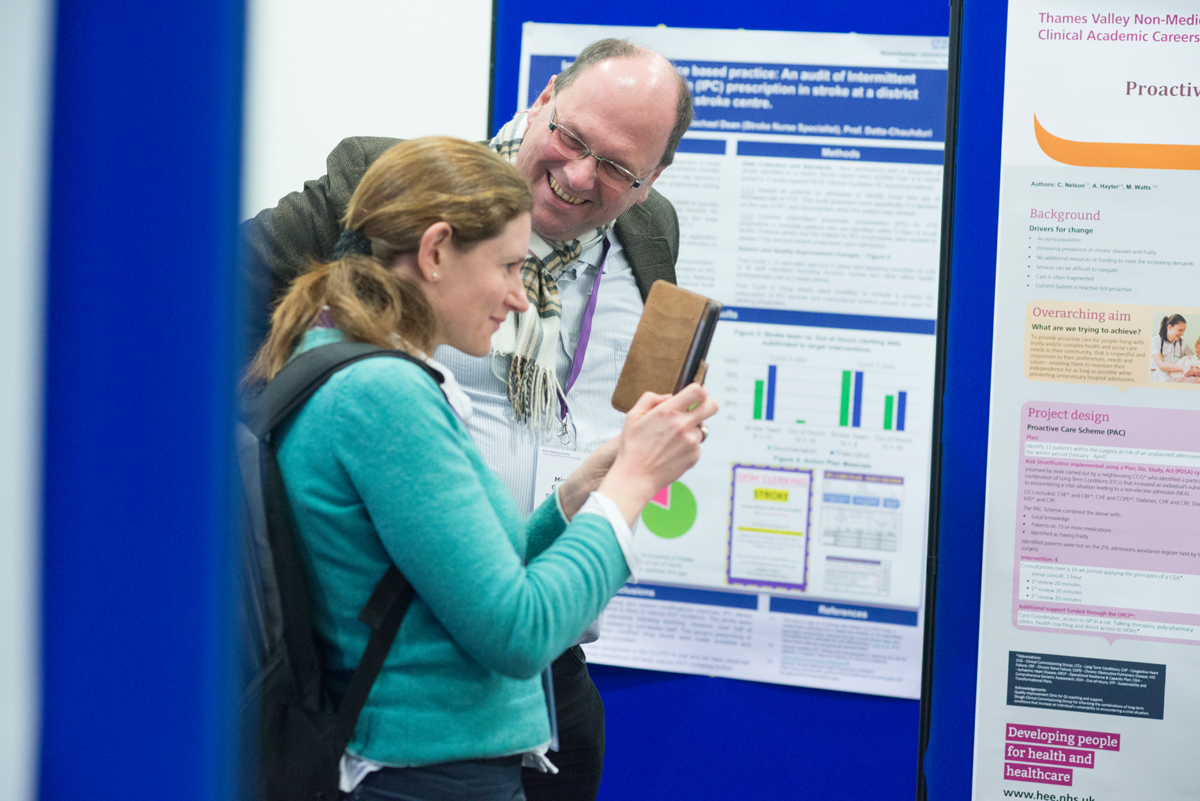Preferred language when referring to older people in a health context
Language to avoid
Healthcare professionals specialising in the care of older people are well placed to lead by example when describing this population in a person-centred, fair and accurate way.
Language used to describe the health status, medical history and other social or clinical attributes of older people should be free from judgement, non-reductionist, and reflective of the lived experience of the individual.
We strongly encourage all healthcare professionals to consider the preferred terminology outlined below when writing or talking about older adults under their care. In particular, authors looking to submit a paper to our journal Age and Ageing or those writing for our member magazine AGENDA should refer to this guide and ensure the consistent use of preferred terminology in their work.
| Language to avoid | Preferred language |
|---|---|
| The elderly/elders |
Older people/patients/adults/individuals
|
| The aged | |
| Pensioners | |
| Seniors/senior citizens | |
| Burden (as in 'burden of disease' etc) | Prevalence, occurrence |
| Acopia/acopic | Meaningless phrase - avoid use |
| Unreliable history/historian | Meaningless phrase - avoid use |
| Mechanical fall | Meaningless phrase - avoid use |
| Senile/senility | Cognitive impairment/cognitive decline |
| Demented | Has dementia. Person/patient living with dementia. Has dementia due to... [known cause] |
| Incompetent | Lacks mental capacity to make decision |
| Bed blocker |
Delayed discharge/delayed transfer of care/medically fit for discharge; older person living with frailty who has been suboptimally assessed and cared for
|
| Off legs | Immobility/Sudden deterioration in the ability to walk |
| Frail | (Older) person with frailty/living with frailty |
| Chronically ill/chronic illness | (Multiple) long-term conditions/multimorbidity |
| Social admission | Meaningless phrase - avoid use |
| Baby Boomers | The generation of people born from 1946 to 1964. Only to be used when discussing topics relating to generations. |
| Old people's home/Institutional care |
Care home, Nursing home (for higher need residents receiving care from registered nursing staff), Long term care facility, Aged care home/facility
|
| Noncompliant, difficult | Found it challenging to due to... [if cause known]/non-concordant/non-adherent |
| Suffering with/from | Living with/with symptoms of/with a diagnosis of |
| Passing away/passed | Died |
| Parkinson's/dementia/etc patient | Person living with/Person with a diagnosis of [health condition] |
| Sufferer | |
| Failure to thrive | No clinical improvement/no physical, cognitive, physiological improvement |
| Faller | (Older) adult at risk of falls/with lived fall experience |
| Defining people by a diagnosis (e.g. "diabetics") | "People living with diabetes" may be more appropriate for public-facing communications |
| Patient | Only appropriate to describe a person receiving inpatient medical care. Otherwise is a potentially reductionist term that is best avoided. |
| Disability/handicap | Consider using "activity limitation" or "participation restriction" as alternative language where appropriate |
| Carer/caregiver/healthcare worker/care worker | "Carer" is associated with someone who provides informal or unpaid support. Another term may be more suitable to describe a professional care worker |
| Geriatric (when used to describe a person) | Geriatric/geriatrics in a medical specialty context; older person when describing a person |
| Wasting away or other description of declining body mass and function | Sarcopenia; deconditioning; loss of muscle mass |
Assumptions about older people to avoid
Alongside the considerate use of language, we would also encourage people to avoid making sweeping generalisations or judgements when describing the lives and experiences of older adults.
Like people at any other stage of the lifecourse, older people are individuals with diverse backgrounds, values, priorities and lifestyles. When describing and thinking about older people, try to avoid unfounded assumptions that suggest:
- They are a homogenous group
- They have similar priorities and wishes
- They have children/families ready and willing to care/advocate for them
- They are lonely or socially isolated
- They are dependent on others
- They are 'sweet,' 'little,' or other demeaning and/or infantalising assumptions
- They are asexual
- They are unwilling/unable to adapt to new technology or ideas
- They are not in employment
- They are sitting on personal wealth or living in poverty
- They don't have faces or personal identity (i.e. avoid images of older people's hands/walking stick etc as a representation)
- They are living with poor health and/or poor health defines their life, activities or identity
- They negatively perceive the process of growing old
- They lack agency and/or cannot speak for themselves.
This is not an exhaustive list and we welcome suggested additions via the form at the end of this page.
Other considerations
There are some other more general considerations to take into account when describing specific characteristics of people at any age. The below guidance forms part of the forthcoming updated author resources for submissions to Age and Ageing journal, but may be helpful for anyone describing older adults.
Sex and gender
Health status
Further reading
- Frailty: Language and perceptions - BritainThinks (on behalf of Age UK and the British Geriatrics Society)
- Terms for older adults - Style guide from APA
- The Geriatrics “Profanisaurus.” Words and phrases we should ban? - BGS blog by Dr David Oliver
- How to Avoid Ageist Language in Aging Research? An Overview and Guidelines - Activities, Adaptation & Aging





